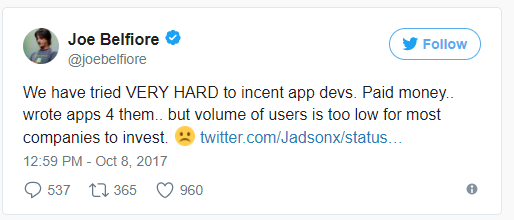
Amazon and Google are fighting this week and end users are suffering. This fight isn’t about cutting off access to YouTube, it is about two companies finding themselves competing in cloud hosting, digital assistants, customer behaviors, forked operating systems, and now advertising.
As companies like Google, Amazon, Oracle, and Microsoft fight with each other, China is quietly growing their AI capabilities and they are applying them to areas that the US would never (publicly) be able to admit.
CVS is trying to out-run the business black hole that is Amazon. As rumors swirl that Amazon might get into pharmaceuticals, CVS is attempting to purchase healthcare company Aetna. These are certainly interesting times.
Acquisitions
- CVS buys health insurer Aetna to counter Amazon
Neither CVS nor Aetna has explicitly mentioned Amazon. However, it’s no secret that Amazon looms large over the proposed merger. The New York Times reports that CVS and Aetna met “several times” for talks with Amazon’s potential competition in mind. Also, CVS is in a prime position to change its strategy. It makes the most money from its pharmacy benefits business (which serves companies and insurers), not its stores, so it could continue to thrive even if Amazon swoops in and destroys its retail sales.
Aetna isn’t under the gun in the same way. It was recently blocked from buying a key competitor, Humana, and has been looking for a way to expand without invoking the wrath of antitrust regulators. CVS makes sense in that regard — the two firms operate in related areas, but they wouldn’t be shrinking the markets for health insurance or pharmacies. There is a concern that they might hurt choices for Medicare, since both are key to offering prescriptions to Medicare recipients.
https://www.engadget.com/2017/12/03/cvs-buys-aetna-to-counter-amazon/
Artificial Intelligence
- COMB+ announces a $77M fund to help AI startups enter China
The fund, which was announced at Slush in Helsinki this week, is run by COMB+ and the Beijing Institute of Collaborative Innovation (BICI). COMB+ launched its Sino Track accelerator program last year, which is based in Beijing and Helsinki and helps early-stage firms grow in China, and this is the second part of its strategy.
So far more than half of the €65 million target has been raised, COMB+ CEO Leo Zhu told TechCrunch via interpreters in an interview. He didn’t name any confirmed LPs but said the fund is backed by government funds, government institutions, private enterprises and big corporates most of which are from China.
https://techcrunch.com/2017/12/01/comb-china-ai-fund/?ncid=rss
China’s A.I. Advances Help Its Tech Industry, and State SecurityAs China tests the frontiers of artificial intelligence, iFlyTek serves as a compelling example of both the country’s sci-fi ambitions and the technology’s darker dystopian possibilities.
The Chinese company uses sophisticated A.I. to power image and voice recognition systems that can help doctors with their diagnoses, aid teachers in grading tests and let drivers control their cars with their voices. Even some global companies are impressed: Delphi, a major American auto supplier, offers iFlyTek’s technology to carmakers in China, while Volkswagen plans to build the Chinese company’s speech recognition technology into many of its cars in China next year.
At the same time, iFlyTek hosts a laboratory to develop voice surveillance capabilities for China’s domestic security forces. In an October report, a human rights group said the company was helping the authorities compile a biometric voice database of Chinese citizens that could be used to track activists and others.
https://www.nytimes.com/2017/12/03/business/china-artificial-intelligence.html
- IBM unveils ‘game-changing powerhouse’ for AI
POWER9 has the ability to improve the training times of deep learning frameworks by almost four times faster and allows enterprises to build more accurate applications at a much faster rate.
As a result of the better performance, data scientists are able to build applications faster, from deep learning insights across scientific research to real-time fraud detection and credit risk analysis.
- Elon Musk says Tesla is making A.I. hardware that could be ‘the best in the world’
Several other automakers, including Ford and GM, are developing self-driving technology. Alphabet, which has developed custom chips that can be used instead of Nvidia graphics cards, operates the Waymo self-driving car division. Apple has pursued autonomous driving, and it has also developed custom silicon to handle AI workloads on mobile devices.
In the Thursday talk, Keller suggested that with custom hardware it’s possible to boost efficiency, while Musk talked about power and cost advantages, according to one report about the event on Twitter.
Cloud
- Amazon is an 800-pound gorilla that moves like a cheetah, says analyst
In a week that featured 22 product and services announcements (according to Andy Jassy, AWS chief executive officer), industry analysts were left to assess the significant position in the IT ecosystem that AWS has staked out for itself. “This is a real merging of application developers and the more traditional kinds of companies,” Warren said. “It feels like re:Invent this year is a blending of the entire IT ecosystem.”
A key message that emerged from the various AWS releases is that the company has made major strides to debunk “fear, uncertainty and doubt” that it could not be taken seriously as a major player in enterprise cloud computing. “The big story this year is legitimacy across the board in every vertical and every category,” Furrier said. “Re-engineering and re-imagining are happening, and Amazon is just feeding the marketplace.”
https://siliconangle.com/blog/2017/12/01/amazon-is-an-800-pound-gorilla-that-moves-like-a-cheetah-says-analyst-reinvent/
Nothing really new, I just like the headline. - Microsoft CFO sees Google’s cloud as a threat and praises its chief: ‘She’s always been a winner’
In her Tuesday remarks — which came after Wells Fargo analyst Philip Winslow specifically asked about Google — Hood also praised Greene, the head of Google’s cloud efforts for the past two years. Greene, who was formerly CEO of VMware, announced last week that she hired Diane Bryant from Intel to be operating chief of Google’s cloud.
“We’ve seen more of them in the past few quarters than we’ve seen before,” Hood said. “I think they’re making a good effort. I think Diane Greene is an excellent leader and an established enterprise CEO.”
https://www.cnbc.com/2017/12/05/microsoft-cfo-amy-hood-says-google-cloud-becoming-a-bigger-competitor.html

I always call out the s**t-talking, I should highlight the acts of class as well. - Cheapest enterprise cloud storage providers not always best
Bala’s public recommendation to conference attendees was the following: “Think about the number of years that a vendor has been in this market and their commitment to the market. The last thing you want to do is go with a vendor who says, ‘Well, the v1 version of our service didn’t work, and we’re going to scrap it, and we’re going to restart over again.’ There are a lot of customers in that boat.”
Although Bala’s cautionary advice did not note specific enterprise cloud storage providers that abandoned the original versions of their cloud storage services, he did offer frank assessments of each of the major challengers to dominant player AWS.
“Oracle did something very smart. They opened a large office in Seattle, and they’ve hired a bunch of AWS engineers. So, they’ve got several hundred AWS engineers that are building v2 of Oracle service,” Bala said. “After having failed the first time, they’re doing some really thoughtful things the second time.”
Bala said IBM’s public cloud storage, also based on OpenStack, “didn’t really go anywhere” and “had lots of problems,” leaving the company “trying to rebuild it.” He said IBM spent lots of money trying to buy companies, as well as trying to rebuild in-house.
Software/SaaS
- Three Uber security managers reportedly resigned today
Three senior-level security managers resigned from Uber today, Reuters reported earlier today. One of the three who resigned, Pooja Ashok, was chief of staff to now-former Chief Security Officer Joe Sullivan. Sullivan was fired last week for trying to hide the security breach that affected about 57 million riders and 600,00 drivers.
The other two who resigned were Prithvi Rai, a senior security engineer, and Jeff Jones. Both Ashok and Jones are planning to stay at Uber until January to help with the transition.
https://techcrunch.com/2017/12/01/three-uber-security-managers-reportedly-resigned-today/?ncid=rss
- Inside Oracle’s cloak-and-dagger political war with Google
For the past year, the software and cloud computing giant has mounted a cloak-and-dagger, take-no-prisoners lobbying campaign against Google, perhaps hoping to cause the company intense political and financial pain at a time when the two tech giants are also warring in federal court over allegations of stolen computer code.
Since 2010, Oracle has accused Google of copying Java and using key portions of it in the making of Android. Google, for its part, has fought those claims vigorously. More recently, though, their standoff has intensified. And as a sign of the worsening rift between them, this summer Oracle tried to sell reporters on a story about the privacy pitfalls of Android, two sources confirmed to Recode.
Other
- Now on Oracle’s Campus, a $43 Million Public High School
“Nobody has done anything like this before,” said Colleen Cassity, the executive director of the Oracle Education Foundation, a nonprofit funded by the company. The foundation oversees the company’s partnership with the school.
Design Tech High School, known as d.tech, was founded in 2014 with the aim of steeping students in design thinking, a creative problem-solving strategy popularized by Stanford University’s design school. It teaches students to empathize with people before trying to devise solutions to their problems.
- Why Amazon and Google just can’t get along
At this point, it’s easy to see why Amazon wouldn’t want to support Google’s products, and vice versa: Each company is using hardware to fortify themselves while attacking their rival’s core business. Without some broad-ranging truce, in which each company agrees to treat each other’s services equally and let consumers decide what’s best, Amazon and Google would only be undermining themselves.
- IBM to invest $200 million in climate change research
Not all businesses, however, take a short-term view of their operations, with increasing numbers of CEOs seeing reason, as a destroyed planet will even impact them and their shareholders in the long-run. In this vain, IBM recently announced it will direct around $200 million into five climate-related projects. Despite a rocky year financially, which saw global revenues further stagnate at the global technology giant, the organisation still saw fit to support scientists in their pursuit to better understand the consequences of humanity’s current uncritical climate forcing experiments.
The funds will be awarded to projects that are judged to have the greatest potential impact on our understanding of climate change, and that consider strategies to mitigate its effects. The five projects would also be able to take advantage of IBM’s World Community Grid, an IBM Citizenship initiative that taps into the combined computing power of 730,000 worldwide volunteers. A similar project was recently run on such a network, allowing Harvard University to identify 36,000 carbon-based compounds that may approximately double the efficiency of most organic solar cells currently in production.
https://www.consultancy.uk/news/14900/ibm-to-invest-200-million-in-climate-change-research
Photo: CloudVisual



















